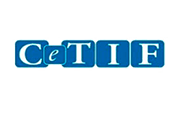Tokenization: Reshaping Financial Markets and creating new asset classes
by Melvin Jayawardana
In recent years, the financial sector has seen a major movement away from cryptocurrencies towards tokenized assets. This transformation has paved the way for a revolutionary voyage in the capital markets, fuelled in part by cryptocurrency disputes and the fall of FTX. Executives at prominent asset managers are conducting extensive research on the digital asset ecosystem, focusing on the opportunities and economies of scale that will bring blockchain and the tokenization of existing assets to traditional and new investors.
BlackRock, a major investor in this space, has mostly viewed the digital asset ecosystem through the lens of bitcoin. JP Morgan began its tokenization journey by tokenizing BlackRock money market fund shares for use in its blockchain-based collateral management system. This was a significant step, and other industry titans like Vanguard, State Street Global Advisors, Invesco, Amundi, and BNP AM will closely follow suit.
The management of a money market fund in US Treasury reserves for stablecoin is a fundamental driver of BlackRock’s involvement in the digital asset market. Larry Fink, CEO of BlackRock, emphasised the importance of creative technology in moving beyond traditional asset classes while addressing modern challenges, drawing a parallel between the evolution of music consumption with CDs, MP3, and streaming, emphasising the importance of actual breakthroughs rather than simply advances of current approaches.
Asset tokenization is currently being investigated by the financial services industry. While real-world implementation strategies are still being developed, blockchain technology’s potential uses in financial services are becoming obvious. In the future years, tokenization will create new asset classes as well as new investment opportunities.
Tokenized exchange-traded funds (ETFs) are becoming a reality, and hedge funds, open-ended funds, and ETF managers are preparing to trade tokenized shares on blockchains in order to expand their market share. Trading on the blockchain offers unrivalled speed and efficiency, which is especially beneficial for exchange-traded funds (ETFs). Quick settlement reduces counterparty risk, boosts liquidity, and makes worldwide collateral use easier. Financial institutions may be able to shift from the existing T+2 standard to near real-time settlement as a result of this expedited settlement, enabling round-the-clock trade. Tokenization enables asset managers to deliver more investment options to their clients while dramatically cutting expenses through automated reconciliation and smooth asset turnover.
Tokenization simplifies operations whilst also providing transparency and compliance. When shares are fractionalized and revenue streams are differentiated, investment institutions can better control risk and use smart contracts to provide rapid regulatory compliance evaluation. The global availability of public blockchains enables access to a larger pool of potential investors. To reach its full potential, significant markets must be linked with regulatory advancements in technology. Other challenges include managing liquidity, reconciling 24-hour blockchain activity with traditional market hours, and ensuring exchange compatibility.
Despite these obstacles, ETF Tokenization is becoming a higher priority, indicating a trend towards more pilot efforts and a strong belief in Tokenization’s transformative potential in financial markets. Tokenized ETFs represent a significant advancement in financial instruments. Despite operational and regulatory hurdles, they provide a streamlined, transparent, and accessible future from anywhere in the world.
Parva Consulting can assist institutions in making the shift to tokenization.
Analysis and Strategy Development: Parva undertakes extensive examinations to determine whether a company is ready to implement tokenization. We create tailored road maps that align with an organization’s goals, finding opportunities and managing hazards along the way.
Navigating Regulatory Frameworks: Parva excels at understanding and reacting to changing regulatory environments. We assist organisations in navigating regulatory difficulties and ensure that tokenization goes successfully.
Technology Integration: Parva advises on relevant blockchain technologies and aids with their integration into current procedures to provide a smooth transition.
Simplifying Operations: By utilising the efficiency of tokenization, Parva supports institutions with simplifying procedures, allowing for faster settlements, automatic reconciliation, and lower operational costs.
Collaborations & Alliances: Parva uses its broad network to facilitate collaboration across institutions and technology suppliers, allowing for faster access to critical resources for successful tokenization.
Monitoring and evaluation: Parva develops comprehensive performance indicators that allow institutions to assess the success of their Tokenization activities and make informed adjustments as needed, ensuring the best possible results in their Tokenization programmes and procedures.














